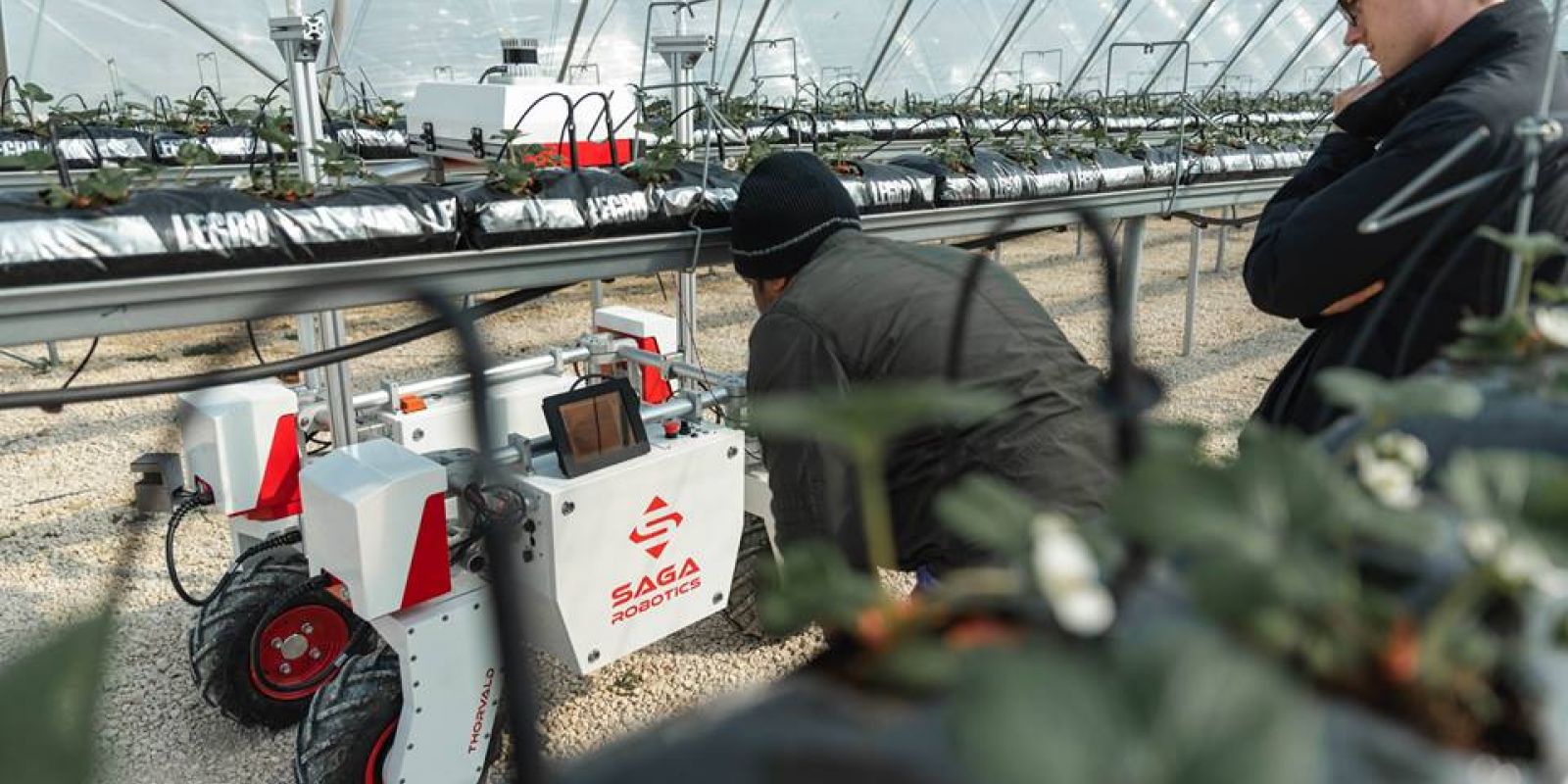Saga Robotics
Norwegian headquartered Saga Robotics is the company responsible for the design, development and production of the world-leading agricultural robot, Thorvald.
The company began its R&D collaboration with the University of Lincoln's institute for Agri-Food Technology (LIAT) in 2017. Their two year Innovate UK-funded project "Autonomous Robots to Support Fruit Picking" marked the start of the RASberry programme - Robotics and Automation Systems for berry production - where the aim was to develop autonmous fleets of robots for the horticultural industry.
It was LIAT's sector-leading expertise in a diverse range of areas such as artificial intelligence, robotics, engineering, crop science, environmental sustainability, food manufacturing, product development and supply chains, which was key to Saga Robotics choosing Lincolnshire as its UK base.
Saga Robotics has since established its UK subsidiary at the Think Tank on the University campus and has grown the UK team to over 25 staff, with a secondary office in Maidstone, Kent. The company is now a lead partner in delivering the 'Robot Highways' project which aims to ensure industry sustainability by addressing labour shortages, the need for global food production and reducing environmental impact on the farming sector.
The consortium secured £2.5m of Innovate UK funding to deliver a vision for the future of soft fruit farming and will create the largest known global demonstration of robotics and autonomous systems (RAS) technologies that fuse multiple application technologies across a single farming system. With an aim to be delivered by 2025 across the UK, a fleet of robots will perform a multitude of on-farm functions as one opertation, powered by renewable energy.
Halvard Grimstad, Mechanical Engineer at Saga Robotics, said:
"Our ongoing collaboration with LIAT has enabled us to accelerate the development of our commercial solutions for UV treatment, data collection and soft fruit harvesting. LIAT's expertise in agricultural sciences has helped us cover the gap between our vast experience in developing autonomous systems and the real needs of agricultural industries."



